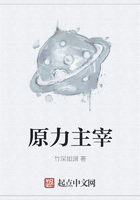Lord Earle took the letter from his hands--he tried to open it, but the trembling fingers seemed powerless. He signed to Hewson to leave the room, and, placing the letter upon the table, resumed his melancholy watch. But in some strange way his thoughts wandered to the missive. What might it not contain, brought to him, too, in the solemn death chamber? He opened it, and found many sheets of closely covered paper. On the first was written "The Confession of Hugh Fernely."
The name told him nothing. Suddenly an idea came to him--could this confession have anything to do with the fate of the beloved child who lay before him? Kneeling by the dead child's side, he turned over the leaf and read as follows:
"Lord Earle, I am dying--the hand tracing this will soon be cold. Before I die I must confess my crime. Even now, perhaps, you are kneeling by the side of the child lost to you for all time. My lord, I killed her.
"I met her first nearly three years ago, at Knutsford; she was out alone, and I saw her. I loved her then as I love her now.
By mere accident I heard her deplore the lonely, isolated life she led, and that in such terms that I pitied her. She was young, beautiful, full of life and spirits; she was pining away in that remote home, shut out from the living world she longed for with a longing I can not put into words. I spoke to her--do not blame her, she was a beautiful, ignorant child--I spoke to her, asking some questions about the road, and she replied.
Looking at her face, I swore that I would release her from the life she hated, and take her where she would be happy.
"I met her again and again. Heaven pardon me if I did my best to awake an interest in her girlish heart! I told her stories of travel and adventure that stirred all the romance in her nature.
With the keen instinct of love I understood her character, and played upon its weakness while I worshiped its strength.
"She told me of a sad, patient young mother who never smiled, of a father who was abroad and would not return for many years.
Pardon me, my lord, if, in common with many others, I believed this story to be one to appease her. Pardon me, if I doubted as many others did--whether the sad young mother was your wife.
"I imagined that I was going to rescue her from a false position when I asked her to be my wife. She said her mother dreaded all mention of love and lovers, and I prayed her to keep my love a secret from all the world.
"I make no excuses for myself; she was young and innocent as a dreaming child. I ought to have looked on her beautiful face and left her. My lord, am I altogether to blame? The lonely young girl at Knutsford pined for what I could give her--happiness and pleasure did not seem so far removed from me. Had she been in her proper place I could never have addressed her.
"Not to you can I tell the details of my love story--how I worshiped with passionate love the beautiful, innocent child who smiled into my face and drank in my words. I asked her to be my wife, and she promised. My lord, I never for a moment dreamed that she would ever have a home with you--it did not seem to me possible. I intended to return and marry her, firmly believing that in some respects my rank and condition in life were better than her own. She promised to be true to me, to love no one else, to wait for me, and to marry me when I returned.
"I believe now that she never loved me. My love and devotion were but a pleasant interruption in the monotony of her life.
They were to blame also who allowed her no pleasures--who forced her to resort to this stolen one.
"My lord, I placed a ring upon your daughter's finger, and pledged my faith to her. I can not tell you what my love was like; it was a fierce fire that consumed me night and day.
"I was to return and claim her in two years. Absence made me love her more. I came back, rich in gold, my heart full of happiness, hope ****** everything bright and beautiful. I went straight to Knutsford--alas! she was no longer there! And then I heard that the girl I loved so deeply and so dearly was Lord Earle's daughter.
"I did not dream of losing her; birth, title, and position seemed as nothing beside my mighty, passionate love. I thought nothing of your consent, but only of her; and I went to Earlescourt. My lord, I wrote to her, and my heart was in every line. She sent me a cold reply. I wrote again; I swore I would see her. She sent her sister to me with the reply. Then I grew desperate, and vowed I would lay my claim before you. I asked her to meet me out in the grounds, at night, unseen and unknown. She consented, and on Thursday night I met her near the shrubbery.
"How I remember her pretty pleading words, her beautiful proud face! She asked me to release her. She said that it had all been child's play--a foolish mistake--and that if I would give her her ******* from a foolish promise she would always be my friend. At first I would not hear of it; but who could have refused her? If she had told me to lie down at her feet and let her trample the life out of me, I should have submitted.
"I promised to think of her request, and we walked on to the border of the lake. Every hair upon her head was sacred to me; the pretty, proud ways that tormented me delighted me, too. I promised I would release her, and give her the ******* she asked, if she told me I was not giving her up to another. She would not. Some few words drove me mad with jealous rage--yes, mad; the blood seemed to boil in my veins. Suddenly I caught sight of a golden locket on her neck, and I asked her whose portrait it contained. She refused to tell me. In the madness of my rage I tried to snatch it from her. She caught it in her hands, and, shrinking back from me, fell into the lake.















